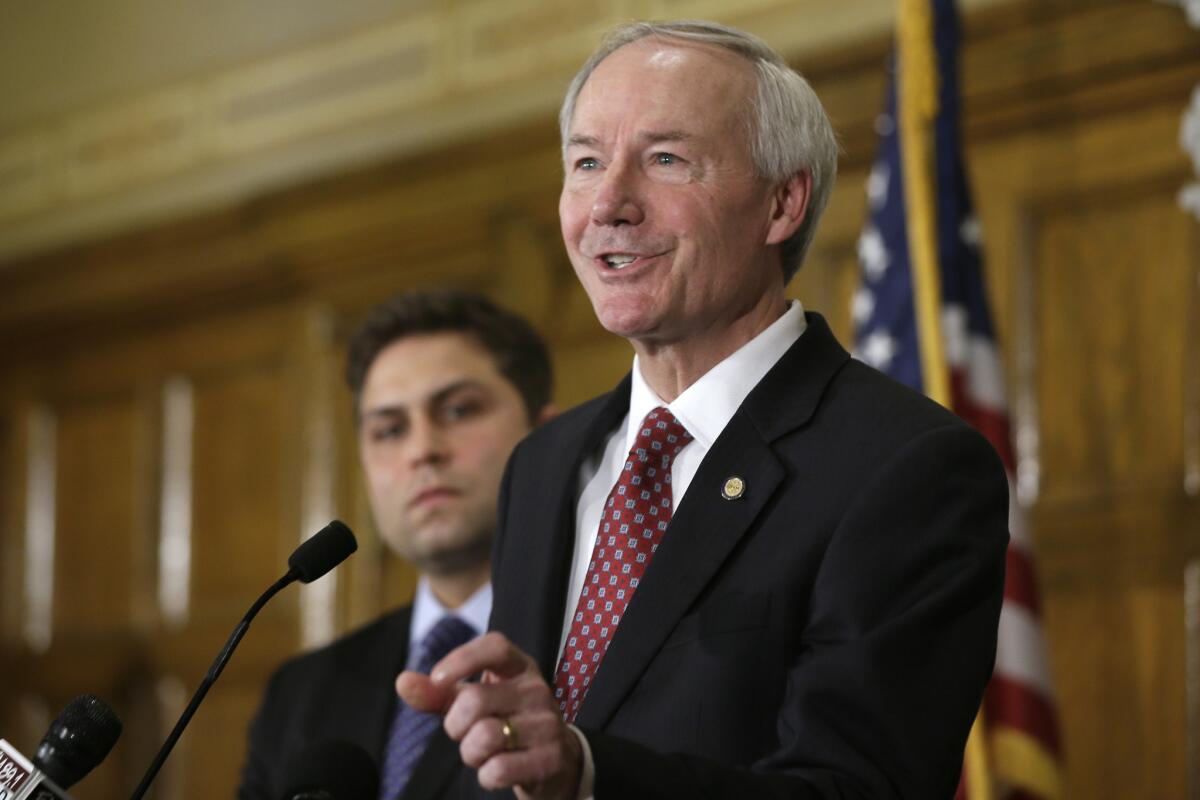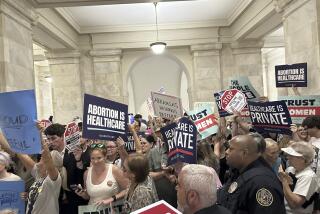Editorial: Religious freedom and gay rights in Indiana and Arkansas

On Wednesday, Gov. Asa Hutchinson of Arkansas declined to sign a Religious Freedom Restoration Act opposed by gay-rights groups and business leaders, including the CEO of Wal-Mart, suggesting instead that legislators recall or revise the bill. Earlier, Gov. Mike Pence of Indiana asked for changes in a similar measure â one he already had signed â to clarify that âthis law does not give businesses the right to discriminate against anyone.â
That two Republican governors are scrambling to counter criticism of these laws speaks volumes about a change in public attitudes toward gays and lesbians. Hutchinson noted that his son was among those who signed a petition asking him to veto the bill.
The two state laws, like the federal Religious Freedom Restoration Act on which they are mostly modeled, would allow believers to be exempted from laws that impose a substantial burden on their free exercise of religion. But the exemption is denied if the law serves a âcompelling governmental interestâ and is the âleast restrictiveâ way of accomplishing it.
A debate has raged in recent days over whether the Arkansas and Indiana measures would make it possible for businesses to refuse to comply with laws against discrimination on the basis of sexual orientation. For instance, bakers and caterers who object on religious grounds to same-sex marriage might refuse to make cakes or other food for a gay wedding.
Some legal experts are doubtful that the bills actually would allow such discrimination. For one thing, itâs not clear that being required to serve gay customers is a âsubstantial burdenâ on a businesspersonâs exercise of religion. Also, the purpose of laws against discrimination is to prohibit discrimination; that is a compelling government interest, and there is no âless restrictiveâ way to accomplish it.
All the same, gay-rights groups worry that some judges would use the state laws â which differ in some respects from the federal law â to release businesses from a legal obligation to serve all customers. Their anxiety is understandable because some prominent supporters of such laws have exactly that outcome in mind.
The biggest problem with the Indiana and Arkansas measures is that they allow corporations as well as individual believers to seek religious exemptions. If someone goes into business to supply goods and services for the public, he or she must not discriminate even against people who believe or behave in a way that offends the business ownerâs religion. Itâs not a legitimate concern for a baker whether the cake he sells is destined for a same-sex or opposite-sex wedding â or the wedding of previously divorced people, for that matter. Laws in Indiana, Arkansas and other states need to make that crystal clear.
Follow the Opinion section on Twitter @latimesopinion and Facebook
More to Read
Sign up for Essential California
The most important California stories and recommendations in your inbox every morning.
You may occasionally receive promotional content from the Los Angeles Times.










